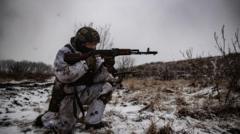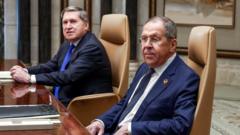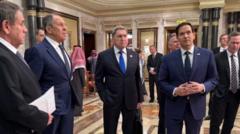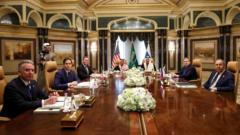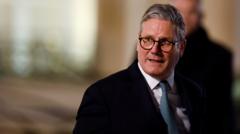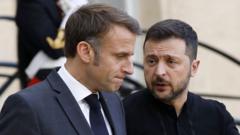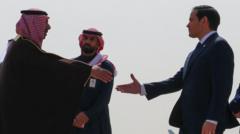At this year's Munich Security Conference (MSC), Vice President JD Vance's remarks diverged sharply from the anticipated dialogues focusing on the ongoing war in Ukraine and the necessity for European nations to ramp up defense spending. Instead, Vance delivered a controversial address that criticized European allies, particularly targeting Britain, for what he viewed as a retreat from democratic values related to free speech and migration concerns.
Vance's European Remarks: A Departure from Key Concerns at Munich Security Conference
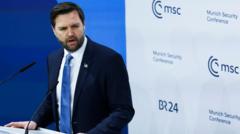
Vance's European Remarks: A Departure from Key Concerns at Munich Security Conference
Amidst critical discussions on Ukraine and European defense, US Vice President JD Vance's speech drew ire for its focus on free speech and misinformation rather than pressing international issues.
The speech was met with notable silence in the hall and failed to resonate even during moments that aimed to inject humor, highlighting a disconnect with the audience present. Analysts have interpreted Vance's confrontational approach as primarily aimed at a domestic American audience, with no substantial engagement on the pressing agenda of the conference. Shortly after his address, Vance met with Ukrainian President Volodymyr Zelensky, who underscored the importance of collaboration between the US and Ukraine to fortify strategies against Russia's aggression.
Amidst these political dynamics, President Trump’s recent statements regarding peace and a potential shift in US policy toward Ukraine have stirred concern among European leaders. With fears that formal peace negotiations could favor Putin, the MSC delegates are left grappling with the implications of Vance’s remarks and the evolving geopolitical landscape.
The contrast between Vance’s criticisms of European leadership and the urgent calls for unity against Russia poses questions about the future of transatlantic relations and the ongoing support for Ukraine in its struggle for sovereignty.
The event at Munich not only highlighted varying perspectives among leadership but also raised alarms over the potential outcomes of the drawn-out conflict in Ukraine, prompting delegates to consider how best to navigate the challenges ahead.
Amidst these political dynamics, President Trump’s recent statements regarding peace and a potential shift in US policy toward Ukraine have stirred concern among European leaders. With fears that formal peace negotiations could favor Putin, the MSC delegates are left grappling with the implications of Vance’s remarks and the evolving geopolitical landscape.
The contrast between Vance’s criticisms of European leadership and the urgent calls for unity against Russia poses questions about the future of transatlantic relations and the ongoing support for Ukraine in its struggle for sovereignty.
The event at Munich not only highlighted varying perspectives among leadership but also raised alarms over the potential outcomes of the drawn-out conflict in Ukraine, prompting delegates to consider how best to navigate the challenges ahead.


